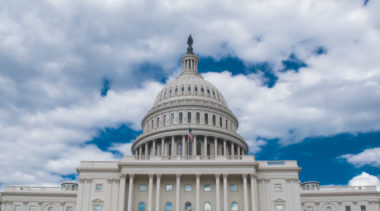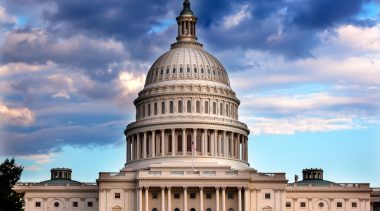Spence Purnell
-
President Trump and Federal Agencies Botched Initial Coronavirus Response — Bailouts Will Make It Worse
Private businesses should not be operating under the premise that in a financial downturn, or even a crisis, they’ll quickly be bailed out by the federal government.
-
What States Can Learn From Black Market THC Products Causing Vaping-Related Illnesses
Entrepreneurs have shown that not every potentially harmful situation necessitates government regulations and that market solutions can be quickly and effectively devised.
-
States Handing Out Economic Development Incentives Aren’t Getting Results
Taxpayers deserve to know exactly how much is being spent by governments on incentive and tax break programs and what the return on that public investment exactly is.
-
What States Can Learn From California’s Expensive Financial Information System Failures
States possess vast amounts of financial and non-financial data, and the best way forward to manage all types of data would be to implement an Open, Public, Electronic, and Necessary (OPEN) data policy.
-
How Cities Often Overstate the Economic Impact of Events and Facilities
Visit Sarasota estimates the World Rowing Championship generated $22 million in economic impact, while the official body of the championships calculated an impact of $7 million.
-
Consideration of XBRL and Structured Disclosures by Municipal Issuers
The Municipal Securities Rulemaking Board should accept and display Inline XBRL disclosures.
-
Missouri and Kansas End Economic Border War
Missouri and Kansas reach deal to stop using subsidies and tax incentives to get businesses to move across state lines.
-
It Is Time to Stop Drug Testing Parolees and Probationers for Marijuana
Drug testing for marijuana does not serve public safety, imposes economic costs, and unnecessarily restricts civil liberties.
-
Capitalization Requirements for Marijuana Businesses Are Unjust and Counterproductive
States with legalized marijuana should let business owners experiment with all different kinds of models and let the market decide which ones are worthy of surviving.
-
Why States With Legalized Marijuana Should Allow Marijuana Lounges
There is an increasing need and consumer demand for lounges where marijuana products can be consumed.
-
Florida Needs to Take Back Control, Approve More Cell Phone Providers for Lifeline Program
Outsourcing the approval process to the federal government has been a failure.
-
State and Local Governments Should Mimic the Open, Public, Electronic, and Necessary (OPEN) Government Data Act
The new law requires federal agencies to publish data online in machine-readable data formats.
-
Medical Marijuana Patients Are Being Denied Gun Rights
The absurdity of ATF's rules denying medical cannabis card holders the right to purchase guns, and what states can do about it.
-
Don’t Let CalPERS’ CEO Scandal Divert Attention From the System’s Accomplishments
The largest pension fund in the country is facing a scandal over apparently false claims its CEO made on her employment application.
-
Worries About Deficits Go Out the Window
Politicians have stopped talking about the federal government's fiscal predicament even though it is getting worse under the Trump administration and Republican Congress.
-
Gambling With Taxpayer Money and Losing: Florida’s Business Incentives Program
Incentive programs fail because they do not account for the fact that the firms are highly volatile and prone to failure.
-
Does Occupational Licensing Really Improve Public Health and Safety?
Who benefits by limiting entry into a job field? Those already working in the field, as it shields them from competition.
-
Florida Says No to Power
Voters should demand the state open its electricity market to competition.

















